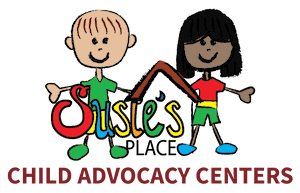Everyone in the state of Indiana is a mandated reporter
This means if you suspect child abuse or neglect, you must report it. Call your local police department and/or Department of Child Services Hotline at 1-800-800-5556.
Common behaviors, signs, and symptoms of child abuse
Look for these common signs of maltreatment and report as much as you know:
- Visible, unexplained or poorly explained injuries. This may include burns, bruises, or other aggressive marks in the shape of objects. If you’re able to talk to the child and they don’t know how it happened, seem frightened, or something about their story doesn’t make sense, report it.
- Abrupt changes in behavior. You may consider this normal for teenagers, but in young children and teens prolonged depression, anxiousness and being withdrawn may be a sign of abuse.
- Changes in academic performance or attendance. Unexplained absences are often investigated by schools and may be a sign of trying to hide injuries. Difficulty concentrating and anxiousness are other signs.
- Drug or alcohol use, or the odor of drug use can be a sign a child is either using drugs or in an environment where drugs are used.
- Overly sexualized behavior can be exhibited in sexual abuse and assault victims. This isn’t limited to behavior, but can also be in the form of sexual language.
- Poor hygiene introduces a host of risks to other children, but can also be a sign that parents are neglecting their child at home and it may not be because of sheer poverty. Look for excessively dirty clothes, odor, or lack of appropriate clothes for the weather.
- Sleep and eating changes, especially in under-eating and over-sleeping can be signs of neglected children. Sleeping can be used as a measure to “check out” from a situation, too.
- Mimicking or returning to earlier behavior, such as sucking a finger or bed-wetting, and an unusually high fear of strangers can be a coping mechanism for abuse.
- If a child is afraid of going home, or seems to want to avoid going home, the reason why could be a poor home environment or abuse situation. Especially if you notice a trend where a child wants to avoid a home at particular hours of the day or on weekends or vacations.
You can be a trusted, safe adult for kids and youth
Every situation is unique and will be treated as the professionals involved deem it necessary and within child’s best interest.
Law enforcement and Indiana DCS will contact Susie’s Place if they determine it to be appropriate for the investigation.
If deemed appropriate to proceed with an interview at Susie’s Place, find out how to prepare for your visit to Susie’s Place.
- Call 911 immediately if the child is in danger.
- DO make sure the child remains in a safe environment.
- DO listen to the child.
- DO NOT try to investigate.
- DO NOT talk to or confront the abuser.

